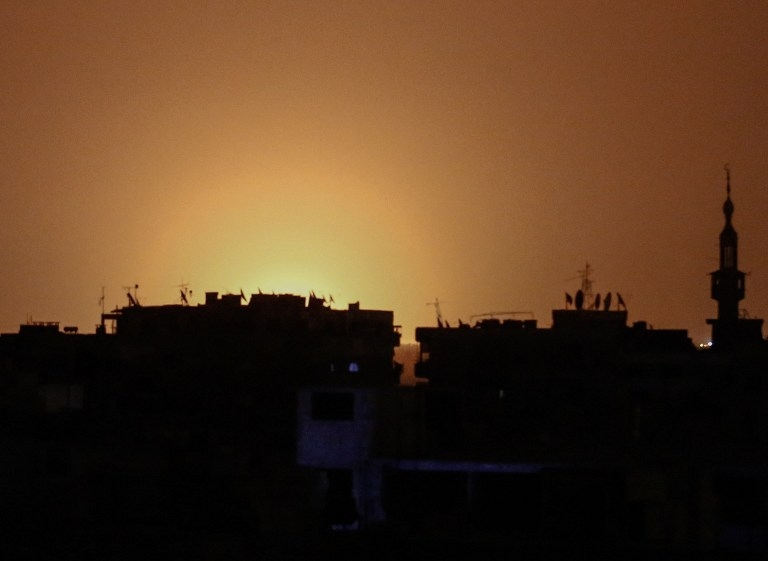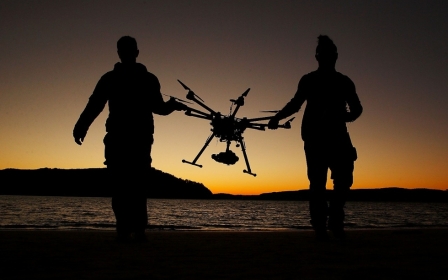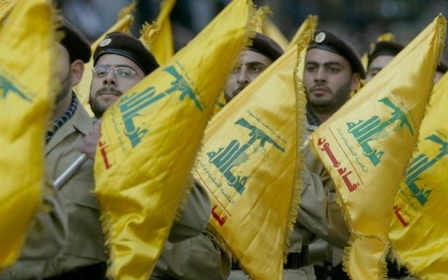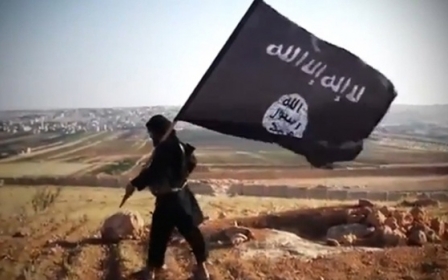Israel hits Hezbollah arms supply depot in Damascus

An Israeli minister appeared to confirm it hit a Hezbollah arms supply depot near Damascus airport on Thursday, where the Lebanese group receives shipments from Iran.
Yisrael Katz, Israel’s intelligence minister, strongly suggested Israeli forces carried out the attack.
“I can confirm that the incident in Syria completely conforms to Israel’s policy, [which is] to act so as to prevent the smuggling of advanced weapons from Syria to Hezbollah in Lebanon by Iran,” he told Army Radio.
“When we receive intelligence that points to the intention to transfer advanced weapons to Hezbollah, we will act. This incident conforms completely to that policy.”
The depot handles a significant amount of weapons that Tehran, a major regional ally of Syrian President Bashar al-Assad, sends regularly by air, a regional intelligence source told the Reuters news agency
A spokeswoman for the Israeli military, asked if Israel had been involved in carrying out the air strikes on Thursday, told Haaretz: "We can't comment on such reports."
Israel does not usually confirm or deny each individual raid it carries out.
Hezbollah's al-Manar television had earlier said the explosion was "probably" caused by an Israeli air strike.
"The blast was huge," Syrian Observatory for Human Rights chief Rami Abdel Rahman told AFP. "It's unclear what caused the explosion but there are fires raging at the site."
Al-Manar said the strike caused only material damage.
"Al-Manar's correspondent reported that an explosion struck at dawn on Thursday hitting fuel tanks and a warehouse near Damascus International Airport and that it was probably the result of an Israeli strike," the channel said.
The airport lies about 25 kilometres southeast of the capital.
Israeli warplanes have hit the airport and other bases around the capital in the past, targeting what it said were weapons stockpiles of its foe Hezbollah.
It was hit by Israeli air strikes in December 2014, Syrian state media reported at the time.
But last month, Israel said it had carried out several strikes near the Syrian desert city of Palmyra, targeting what it said were "advanced weapons" belonging to Hezbollah.
The strikes prompted Syria to launch retaliatory ground-to-air missiles, one of which was intercepted over Israeli territory in the most serious flare-up between the two neighbours since the Syrian civil war began six years ago.
Israeli Defence Minister Avigdor Lieberman threatened to destroy Syrian air defence systems if they were used again.
On 13 January, Syria accused Israel of bombing Mazzeh air base in the western suburbs of the capital. There were several strikes near the same base last year.
In April 2016, Netanyahu admitted for the first time that Israel had attacked dozens of convoys in Syria that he said were transporting weapons destined for Hezbollah.
Israel and Syria are still technically at war, though the armistice line had remained largely quiet for decades until 2011 when the Syrian conflict began.
Israel and Hezbollah fought a devastating 34-day war in 2006 which killed 1,200 people in Lebanon, mainly civilians, and 160 Israelis, mostly soldiers.
Middle East Eye propose une couverture et une analyse indépendantes et incomparables du Moyen-Orient, de l’Afrique du Nord et d’autres régions du monde. Pour en savoir plus sur la reprise de ce contenu et les frais qui s’appliquent, veuillez remplir ce formulaire [en anglais]. Pour en savoir plus sur MEE, cliquez ici [en anglais].




